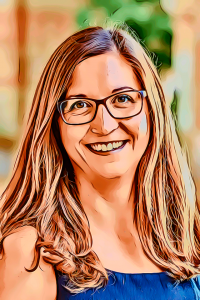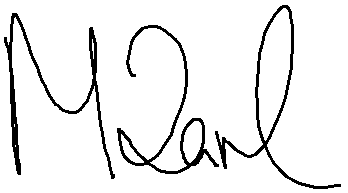165 Letter from Marion Karl

Dear fellow female tourism researchers of the present and future,
I am still very much at the beginning of my career compared to some of the wonderful tourism researchers in this book who I do admire and who have always inspired me to continue my path. After several years of uncertainty and short-term contracts during which I have asked myself many times if academia is actually the right path for me (the answer was always ‘yes’ because I love the work), I was offered my first permanent position recently. My academic journey has definitely not been one without detours but I have realised that all these detours are just part of my journey that led me to where I am today. Of course there were some detours that were a little too long or difficult but ultimately they helped me grow – and I enjoyed most of them. Now I can’t change anything from my own journey (and don’t want to) but there is some advice that I want to share with you from my early career perspective, with the hope that it can make your journey easier.
1) Take some detours if they help you grow but also be strategic in your choices
I studied geography and chemistry to become a teacher and never thought that I would end up as a full-time academic in tourism research. But from each subject, I learnt important things that are of great help now in my current job. From studying geography, I learnt to always see human behaviour as happening within a certain context (see my chapter on travel decision-making in this book) and that drives my research. My education in teaching gives me pedagogic and psychological strategies that I can use in teaching university students. I don’t know what chemistry has taught me yet, but I loved learning about how the world works and trained my mathematical/natural science brain that is now very useful for statistics. So, while it took me a little bit longer to arrive to tourism research, I have now valuable skills that I wouldn’t have otherwise. But, in many cases, I was not strategic in my choices and that also prolonged my journey. I was even told by an experienced professor to be more strategic in my choices and to have a vision of where I would like to be. My advice would be to figure out where or who you want to be in the future because it makes it a lot easier to draft a plan on how to get there. I found it easiest to find role models, understand how they got to where they are today and then compile my academic dream journey based on this.
2) Look beyond your own research area for inspiration from different disciplines
Maybe it is part of my interdisciplinary background or my passion for working with researchers from outside tourism but I often (mostly) get ideas or find solutions for my research problems by reading papers from non-tourism journals. There is a whole world of fascinating topics that can explain a phenomenon in tourism and we just need to transfer the grounding basic idea into a new discipline. Journals like Nature or Science have amazing summaries of new and exciting research from various disciplines. Because they are focused on an interdisciplinary audience, they are written in a very understandable way. But don’t just focus on scientific literature, sometimes inspiration just comes from you alone during a walk in the local park. So, take the breaks!
3) Trust in your ideas but embrace critical thoughts from others
Our problem as academics is often not that we don’t have ideas but the contrary, that we have too many and we need to decide which one to follow up, to postpone or discard. As a young academic, I sometimes find it difficult to decide which ideas might lead to something great and which ones are just too difficult to implement. So, what helps me best in these situations is to share my ideas with the (right) colleagues and ask them for feedback. Of course the critical thoughts of others may not only be positive and sometimes can be discouraging. Don’t give up too easily and trust in your ideas! I realised that every negative comment can be a potential flaw in my research that I can eliminate before implementing my study – and that just makes research better. The Irish writer C. S. Lewis once wrote: “Two heads are better than one, not because either is infallible, but because they are unlikely to go wrong in the same direction.”
4) Understand failures as a chance to learn
Last year, while trying to find good examples for academic CVs during my job search, I came across a ‘CV of failures’ on the homepage of a young professor at Princeton University. Well, obviously, if he is already professor at Princeton university, he must have had some success. It turns out he wasn’t selected for jobs, was rejected from journals and funders and didn’t win some fellowships. This sounded familiar to me and made me feel better about my own failures. If you ever doubt yourself, be reminded that failures are common territory in academia. Just think of the acceptance rates for grants. You cannot always be one of the 10% who are lucky to win a grant. Don’t ever give up and try winning the grant/publishing the article in the best journal! Who knows, maybe next time you will be one of the 10%. And if you still feel down after a rejection, look into a CV of failure because it shows you (black and white) that failure is part of success. After all, with every failure you will learn something and make it better next time. For an example check out Johannes Haushofer’s homepage[1] and for an explanation of the idea itself, I recommend Melanie Stefan’s article in Nature[2].
5) Find great mentors to guide you and be a great mentor for others
As you can imagine from my journey, I didn’t complete my PhD in the middle of the tourism community. After finishing my PhD, I went to a conference in Brisbane and was invited by a great professor (who later became one of my mentors) to spend some time at The University of Queensland. This was the first time that I was part of the tourism and hospitality world besides brief encounters at conferences. While I cherish my geography background and mentors, I also realised how much tacit knowledge in tourism (e.g. networks, journals, impact factors) I was missing. So, my last advice is that although research work can sometimes be a lonely work, you don’t have to achieve it all on your own. There are many amazing people in academia who can help you on the journey – through research and career advice or by sharing their own experiences. I suggest to find three types of mentors: 1) experienced mentors who can help you create your vision of the future and together you can plan the journey that gets you there; 2) peer mentors who share the same problems, know how you feel at the moment and together you can solve the little daily life challenges commonly faced; 3) female role models who can show you that even as a woman (and mother) you can achieve everything you want. Now, this is not only about taking advice, it is a mutual exchange of working together and giving back just as much and more to others who need your help.
Finally, I want to say “Thank you” to all the inspiring women – in tourism research and beyond – who paved the way for our futures with sacrifices and passion; and made our journeys much easier.
Best wishes for all your futures,
Marion Karl
Ludwig Maximilian University of Munich, Germany


